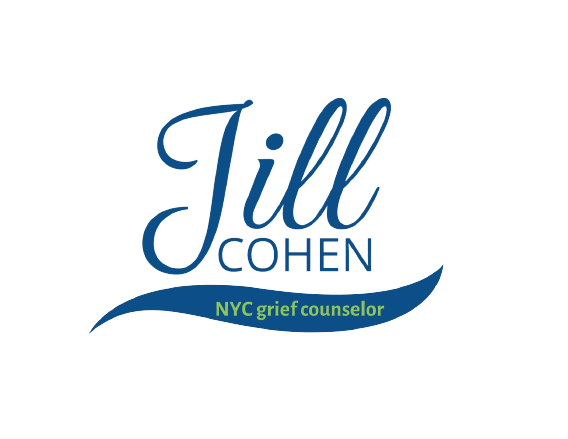All Grief Matters. No Grief Should Be Forbidden, No Matter Who the Deceased Is.
4 Minute Read
All Grief Matters
Very often, I will get a new client in my grief counseling practice, who is experiencing what is known as “Disenfranchised Grief.” This term was created about twenty years ago by Ken Doka, a leading expert in the grief education field.
He defines disenfranchised grief as --
“Grief that persons experience when they incur a loss that is not or cannot be openly acknowledged, socially sanctioned or publicly mourned”.
This kind of grief can happen, says Doka, for a number of reasons that, for the most part, fall into one (or sometimes more) of the following 5 categories:
1. The loss isn’t seen as worthy of grief (ex. non-death losses)
2. The relationship is stigmatized (ex. partner in an extramarital affair)
3. The mechanism of death is stigmatized (ex. suicide or overdose death)
4. The person grieving is not recognized as a griever (ex. co-workers or ex-partners)
5. The way someone is grieving is stigmatized (ex. the absence of an outward grief response or extreme grief responses)
Definitions of Grief Vary
This definition can vary from one person to the next, depending on what kind of friends, family, and community the griever lives among. Two people may experience the same loss, but one may find that loss “openly acknowledged, socially sanctioned or publicly mourned”, whereas in another person’s social situation, among his or her friends and community, it is not. This loss, for one person, may be a disenfranchised loss experience, but not for another person.
The bottom line: Even if you are experiencing a disenfranchised loss, a loss is still a loss, and deserves the same kind of care and respect as any other kind.
Society disenfranchises some grief and mourners by not recognizing either the relationship between the deceased and a survivor, the importance of the loss, or the need to be a griever following such a loss. Grief and sadness make people uncomfortable. So, it’s sometimes easier to try to make people feel better or simply ignore or minimize their grief as something that they need to “get over.”
For example, someone might say to a griever, “He was your ex-husband though.” This can be seen as an unfair, diminishing comment because it doesn’t take into consideration that the griever may have real feelings of love and/or friendship for his/her ex-husband on some level, as well as the acknowledgment of shared time together and perhaps a family.
Listen to this piece from NPR’s Life Kit podcast about coping with Disenfranchised Grief.
4 Characteristics For Successful Grief
The four characteristics for successful grief resolution include:
Accepting the reality of the loss
Experiencing the pain of grief and all the emotions that follow
Adjusting to the new environment without the person or situation
Withdrawing emotional energy and reinvesting it in another relationship. When grief is considered acceptable, there are rituals that surround and ease the pain of the bereaved.
Disenfranchised Grief
However, in the case of those experiencing disenfranchised grief, there is often no extra (or any at all) bereavement leave from work or sympathy cards found to validate a loss that society does not feel warrants sympathy.
Insensitive Comments
Thoughtless comments such as, “You’re still young, you can have another baby,” “Be glad you’re still alive,” or “It was only a dog!” demonstrate how unimportant these losses are to most people. The same goes for an ex-spouse, a close co-worker, or a boss. This kind of disrespect for the griever can cause the griever to feel like there’s nowhere to go to mourn the loss of the relationship, be sad, and be understood.
Disenfranchised Grief Effects
Disenfranchised grief can create effects such as depression, emotional disturbances, withdrawal from society, psychosomatic illnesses, and low self-esteem.
Many of those dealing with disenfranchised grief tend to abuse substances and have difficulty in forming healthy relationships. They also tend to have a harder time coping with subsequent losses.
Check out this helpful article from Healthline for more tips and tricks for dealing with Disenfranchised Grief.
Photo by Sandy Millar on Unsplash
How Can We Help When We Are With Those Bereaved People Whose Grief is Disenfranchised?
It would be so much more appropriate and thoughtful to help by affirming the person’s grief, memories of their relationship, and stating that you do understand the importance of the loss.
Pretending that his/her grief/relationship doesn’t matter much, isn’t going to change the needs of the griever. Instead, it will make them feel worse. They will try to suppress their grief, hold it in, not allow it to happen because they can’t see a place for it to be “okay”.
How Friends and Family Come Into Play
Friends and families of disenfranchised grievers can do a whole lot better if they accept the fact that what may seem minor or silly to one person can be very serious and major to another. And everyone is allowed to feel their own intense emotions for a loss of any kind.
A Note to Grievers: Be Kind
To supporters of those experiencing disenfranchised grief, BE KIND.
To those of you experiencing disenfranchised grief, seek out the people that will understand and support your loss in this situation. A grief counselor will understand the importance of such a loss and guide you through this kind of grief.
Recognize that nobody’s grief should be considered more acceptable or normal than another’s.
Grief is grief, and it is hard for just about anyone and everyone to handle. Grief is individual to everyone and real for everyone who feels it.
If the grief gets to be too much, and the support for it, too little, it may be smart to seek a grief counselor who understands grief nonjudgmentally and can sit with you in your grief as you talk about the relationship to the deceased, whomever it is and whatever the relationship was.




